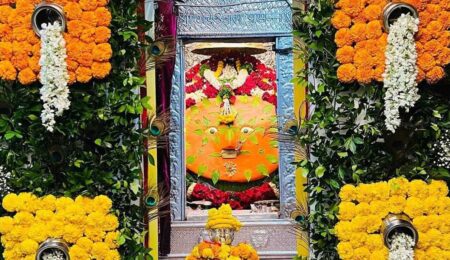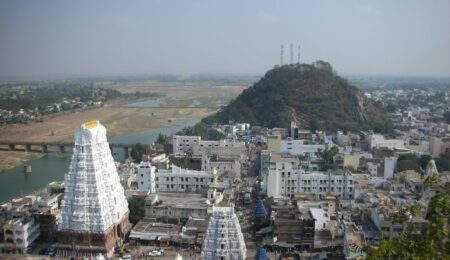Akkalkot: A Spiritual Haven in Maharashtra – History, Culture, and Travel Guide
Introduction to Akkalkot
Nestled in Maharashtra’s Solapur district, Akkalkot is a serene spiritual town revered for its association with the 19th-century saint Swami Samarth Maharaj. A hub for devotees and cultural enthusiasts, Akkalkot blends rich history, vibrant traditions, and divine energy. This guide explores its heritage, geography, key attractions, festivals, and practical travel tips for an enriching visit.
Historical Background of Akkalkot
Ancient Origins
Akkalkot’s history dates back to the Chalukya dynasty (6th–12th century), evident from inscriptions and local lore. Initially a small settlement, it gained prominence under the Bahmani Sultanate and later the Nizams of Hyderabad.
The Swami Samarth Era
The town’s spiritual legacy transformed with Swami Samarth, a mystic believed to be an incarnation of Lord Dattatreya. Arriving in 1856, he performed miracles and attracted followers until his samadhi (ascension) in 1878. The Swami Samarth Temple, built at his final resting place, remains the heart of the town.
Geographical Overview
Location and Climate
Akkalkot lies in southeastern Maharashtra near the Karnataka border. Coordinates: 17.52°N, 76.20°E. The Sina River flows nearby, sustaining its agrarian economy.
Climate:
- Summer (March–June): Hot, up to 40°C.
- Monsoon (July–September): Moderate rainfall.
- Winter (October–February): Pleasant, 15–28°C.
Natural Landscape
The semi-arid terrain features rocky outcrops and sparse vegetation, typical of the Deccan Plateau. Nearby attractions include the Sina River Dam and Kumbhi Hills, ideal for nature walks.
Cultural Tapestry of Akkalkot
Local Traditions
Akkalkot’s culture reflects Maharashtrian roots with Kannada influences. Devotional music (bhajans) and storytelling sessions are common. The town thrives on seva (selfless service) at temples.
Cuisine
Savor Maharashtrian staples:
- Bhakri (millet flatbread) with pithla (gram flour curry).
- Puran poli (sweet lentil-stuffed bread).
Spiritual Significance of Akkalkot
Swami Samarth Maharaj
Believed to grant devotees’ wishes, Swami Samarth’s teachings emphasize karma yoga and devotion. His temple draws lakhs annually, especially during festivals.
Other Spiritual Sites
- Siddheshwar Temple: A 12th-century shrine dedicated to Lord Shiva.
- Datta Mandir: Celebrates the Dattatreya tradition.
Key Places to Visit in Akkalkot
Swami Samarth Temple
- Architecture: Blend of Hindu and Islamic styles with a gold-plated dome.
- Samadhi Mandir: Houses Swami Samarth’s sacred resting place.
Natural Attractions
- Sina River Dam: Scenic spot for picnics.
- Kumbhi Hills: Panoramic views of the town.
Festivals and Events
Guru Purnima (July–August)
Devotees honor Swami Samarth with processions, aartis, and community feasts.
Swami Samarth Jayanti (March–April)
Celebrates the saint’s birth with week-long rituals and cultural programs.
Maha Shivaratri (February–March)
Siddheshwar Temple hosts night-long vigils and offerings to Lord Shiva.
Accommodation Options
Dharamshalas and Ashrams
- Swami Samarth Niwas: Affordable lodging near the temple.
- Gurukrupa Dharamshala: Basic amenities for pilgrims.
Hotels and Guesthouses
- Hotel Rajdoot: Mid-range comfort with AC rooms.
- Shree Krishna Residency: Budget-friendly option.
Travel Tips for Visitors
Best Time to Visit
November–February for pleasant weather. Avoid summers due to heat.
How to Reach
- Air: Nearest airport: Solapur (38 km). Major hubs: Pune (250 km) and Hyderabad (280 km).
- Rail: Akkalkot Road Railway Station (4 km from town).
- Road: Well-connected via NH 65; buses from Pune, Solapur, and Hyderabad.
Local Transportation
Auto-rickshaws and taxis available. Walkable temple area.
Frequently Asked Questions (FAQs)
1. What is famous for?
Akkalkot is renowned for the Swami Samarth Temple and its spiritual heritage.
2. How to reach Akkalkot from Mumbai?
Take a train/bus to Solapur, then a taxi (2 hours).
3. Are there accommodation options near the temple?
Yes, dharamshalas and budget hotels are within walking distance.
4. When is Guru Purnima celebrated?
July–August, drawing thousands for rituals and processions.
5. What local dishes should I try?
Don’t miss bhakri-pithla and puran poli.
Akkalkot offers a soulful retreat steeped in spirituality and tradition. Whether seeking blessings at the Swami Samarth Temple or exploring its rustic landscapes, this town promises a transformative experience. Plan your visit using this guide to immerse in its divine aura and cultural richness.




Leave a Comment